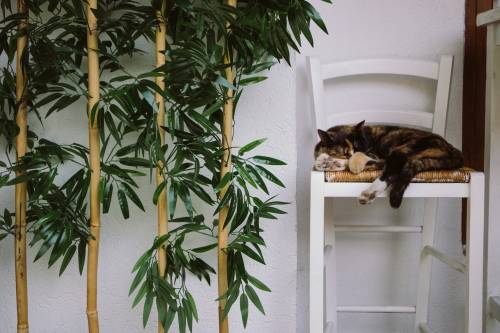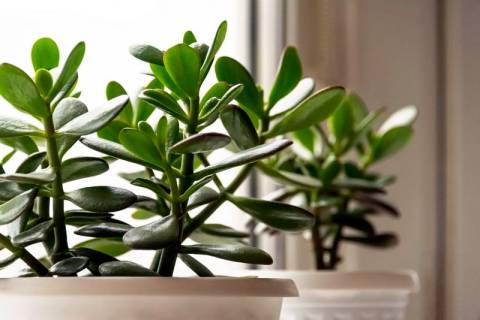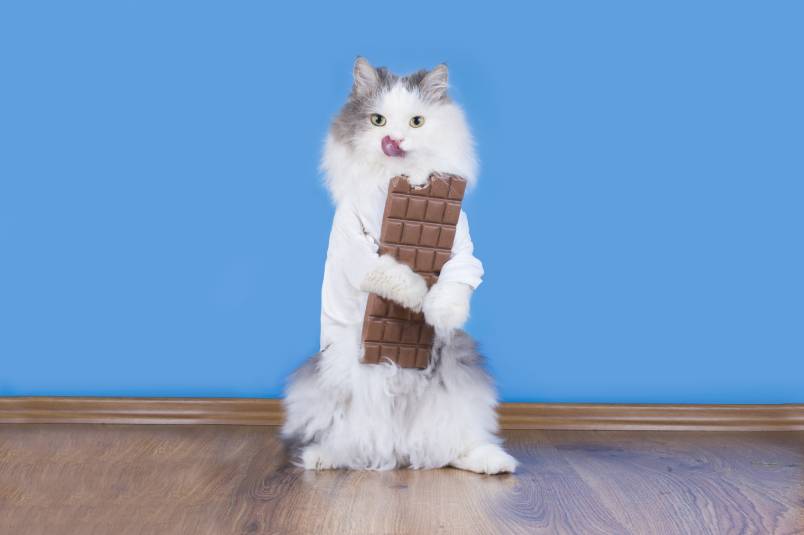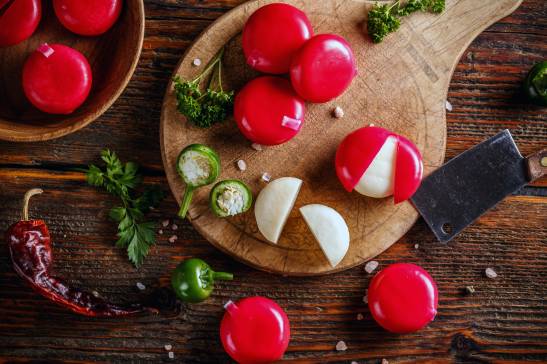Connect with a verified veterinarian in minutes. Licensed vets are available 24/7 to answer your questions. No need to worry about your furry family member.
Cats are sometimes curious about the things in their environment. If they chew on plants outside, it’s possible a cat could also try to eat real plants in the house. However, it would be easy enough for a cat to mistakenly eat a plastic plant, thinking it was real! But what happens if a cat eats a plastic plant?
Has your cat eaten a plastic plant? Are you worried the plastic plant will make your cat sick? If so, you’ve come to the right place. We understand it can be scary when your cat eats something like this.
We’ve gathered information about plastic plants and whether they can make a cat sick. Let’s get started!
What is a Plastic Plant?
A plastic plant is one that’s made to resemble a real plant, but the plastic plant is not living. These plants are made of plastic. For these plants, most of their parts will be plastic, including their leaves, stems, flowers, and more.
People use plastic plants for a wide range of reasons. Some people are not successful at growing live plants or may live in conditions that aren’t conducive to living plants. Even so, these plastic plants look very much like living plants. They can add a touch of nature to a room. These plants are also much easier to care for in places such as an office, darker spaces where plants can’t grow, and more.
Plastic plants are considered safe to use around humans, but what about cats? Can plastic plants make a cat sick?
Plastic Plants & Cats
Unfortunately, plastic plants can make a cat very sick. One of the problems with plastic plants is that they’re made of rigid plastic. If a cat eats this, the rigid plastic can become lodged in her throat and cause the kitty to choke. This can be life-threatening.
Another issue with plastic plants is that they may also become lodged anywhere in the digestive tract. If this happens, the plant can cause an obstruction, which can cause death if not treated.
If your cat has eaten a very small piece of plastic plant, and she’s not choking, chances are she will be OK. The small bit of plastic may travel safely through your fur baby’s digestive system and come out in her poop. So, monitor your cat for any concerning symptoms and call the vet if these develop. Otherwise, watch for the plastic piece to come out in the litter box. If you don’t see it come out after a few days, it’s best to call the vet.

Review symptoms, medications & behavior to keep your pets healthy with a Vet Online in just minutes.
Ask a Vet Live NowSymptoms of Plastic Plant Ingestion in Cats
You may notice these symptoms if your cat has eaten a plastic plant:
- Coughing, retching, difficulty breathing (your cat may be choking)
- Diarrhea
- Constipation
- Vomiting
- Lack of appetite
- Weakness
- Lethargy
- Abdominal pain & swelling
- Cold body temperature
- Crying
- Hiding
If you notice any of these symptoms in your cat, call the vet immediately. This is an emergency.
Treatment of Plastic Plant Ingestion in Cats
Treatment depends on the vet’s diagnosis. If your cat is choking on a plastic plant, the vet may try to remove it by hand or via an endoscopic procedure.
On the other hand, if the diagnosis is an obstruction caused by the plastic plant, the vet may need to perform surgery. The procedure is done to remove the plastic from your kitty’s digestive system and to repair any damage the plastic may have caused.
The prognosis is best for cats who receive prompt medical care after eating a plastic plant. If your fur baby loves to eat plastic plants, it’s best to keep these out of her reach. Or it may be necessary to keep her out of rooms where you have the plants. You’ll both be happier for it!
Connect with a verified veterinarian in minutes. Licensed vets are available 24/7 to answer your questions. No need to worry about your furry family member.

Julie
Julie is a graduate of the University of North Carolina, Wilmington, where she studied Animal science. Though contrary to the opinion of her parents she was meant to study pharmacy, but she was in love with animals especially cats. Julie currently works in an animal research institute (NGO) in California and loves spending quality time with her little cat. She has the passion for making research about animals, how they survive, their way of life among others and publishes it. Julie is also happily married with two kids.
Review symptoms, medications & behavior to keep your pets healthy with a Vet Online in just minutes.
Ask a Vet Live Now




